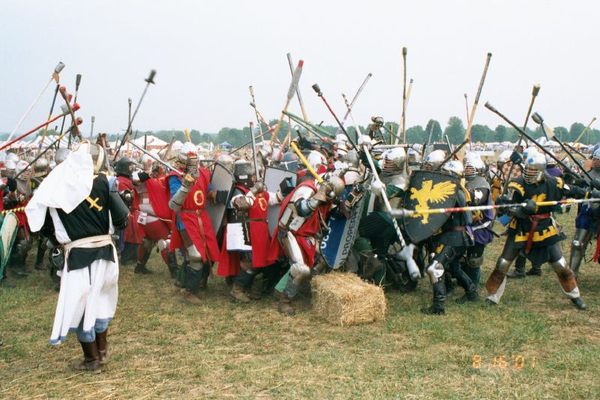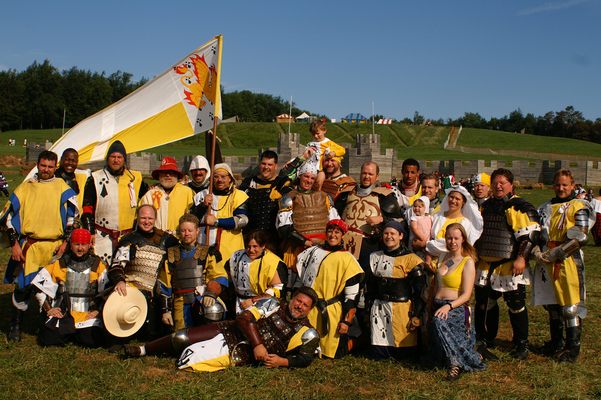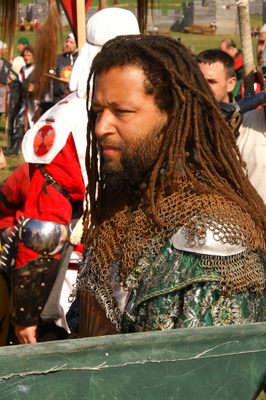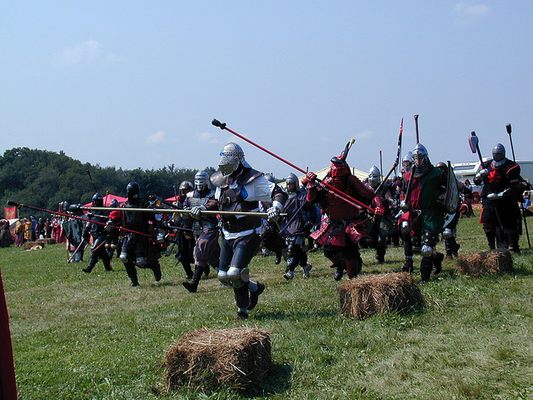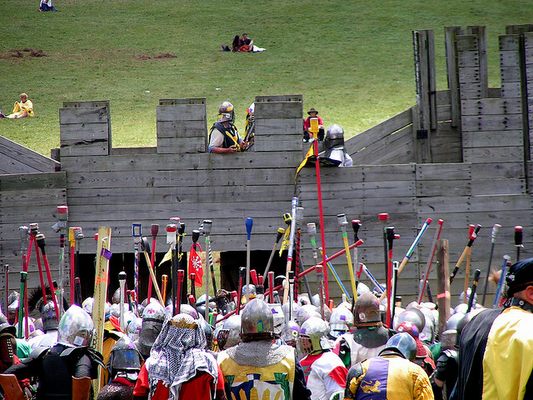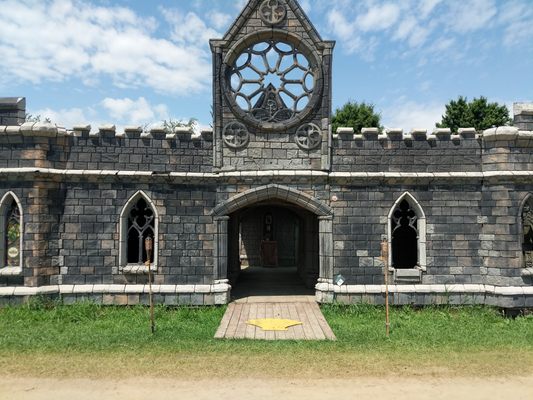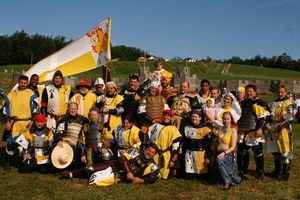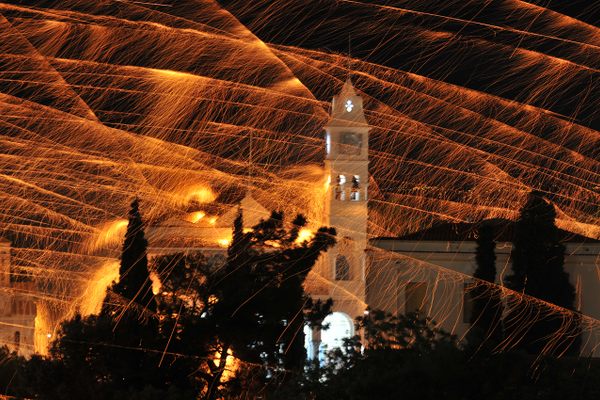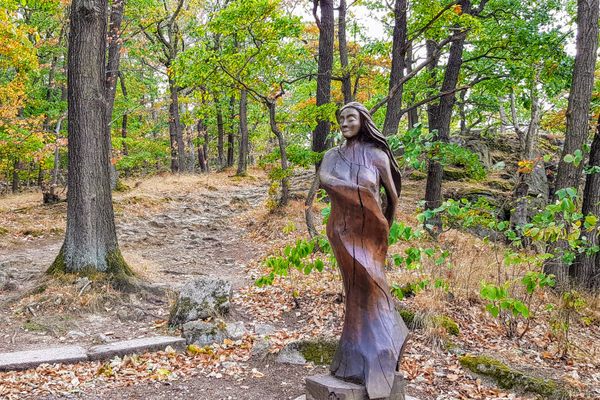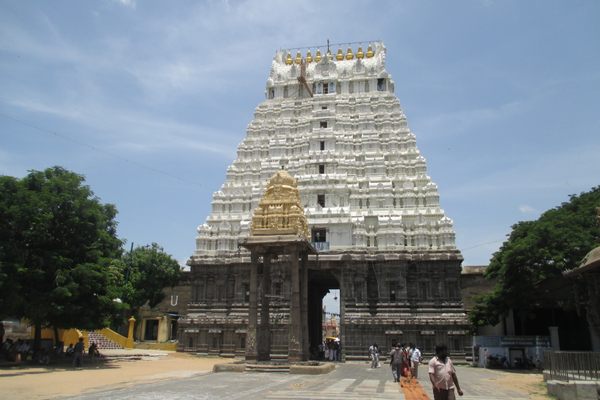About
It all began rather innocuously at a backyard party in 1966. In celebration of all things medieval, a group of medieval-studies grad students dressed up and whacked at each other with fake swords, a fight which culminated in an impromptu parade down Telegraph Avenue in Berkeley, California.
From this modest party would come the "Society for Creative Anachronism" and the Pennsic War, a two week mock "war" in which 10,000 to 15,000 knights, maidens, and other creatively anachronistic people descend on Slippery Rock, Pennsylvania, briefly turning a local campsite into the third largest city in Butler County.
Campers dress in medieval clothing, often camp in pre-17th century-style pavilions, and organize huge fights with thousands of armor-clad combatants armed with rattan swords and maces. At times, combat archers and siege engines also deploy. The medieval themed event is so large that it has its own mayor and post office for those particular two weeks.
The Pennsic War gets its name from the combination of Pennsylvania and Punic War. Held at the Coopers Lake Campground, the traditional "opponents" are subgroups of the Society for Creative Anachronism: the Kingdom of the East and the Middle Kingdom. The challenge for the Pennsic War was begun when King Irial and Queen Morna, the elect royals of the Middle Kingdom, delivered an arrow of war to King Rakkuri and Queen Maureen of the East. It was originally held to decide ownership over the Debatable Lands (also known as Pittsburgh). However, since that area formed their own Kingdom of Aethelmearc, Pennsic has become more of "an earnest desire to have fun and engage in chivalric combat of the highest.” Compared to other similar SCA events the Pennsic War is described by some people as "The Super Bowl of Medieval Combat," with participants coming from all over the world.
In addition to engaging in combat, festival participants can enroll in many courses at Pennsic University. The courses are led by medieval cultural scholars, and topics range from pre-17th C fashion (embroidery, Indian draping, tin hat-making) and cooking (Ottoman cuisine, Anglo-Saxon foods, fire pit breadbaking), to general lifestyle workshops (flirtatious dancing, juggling, theatrical improv).
It should be noted that "participants" is a serious description here. Spectators and visitors are strongly discouraged from attending this private event unless they make a reasonable effort to participate.
Related Tags
Community Contributors
Published
August 10, 2013

